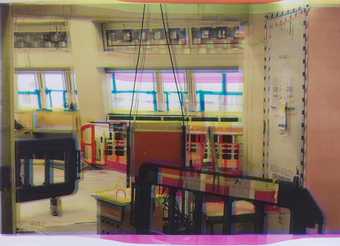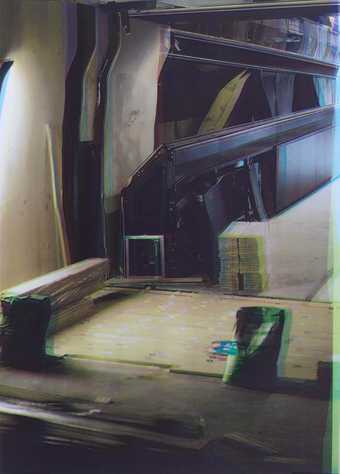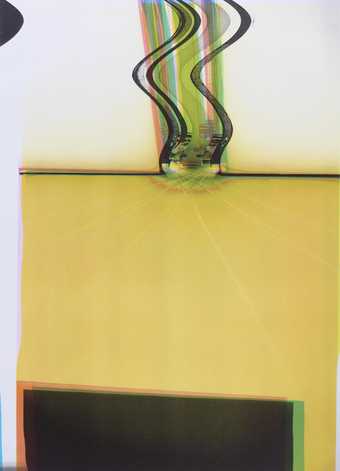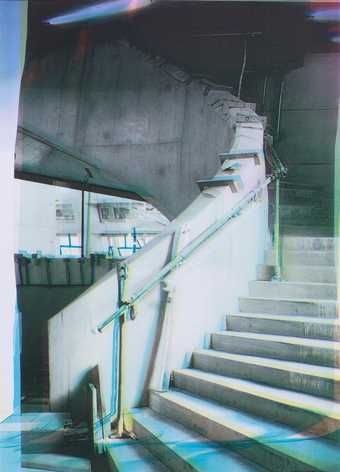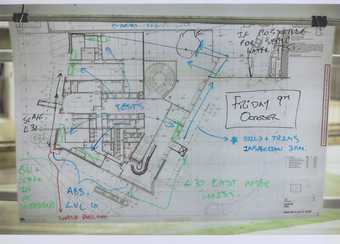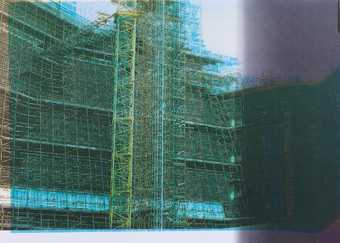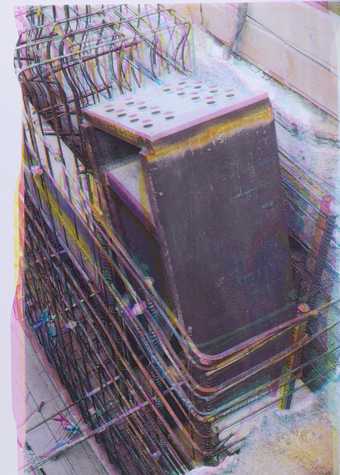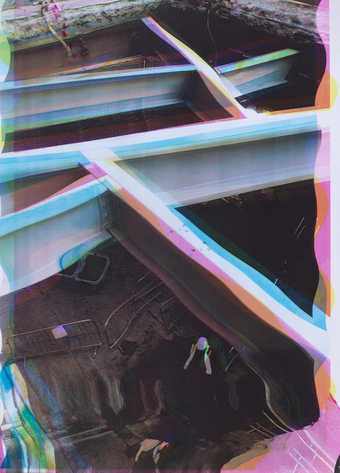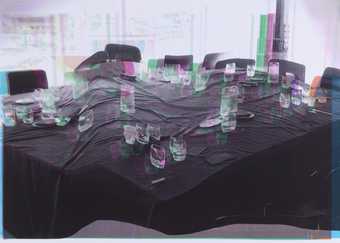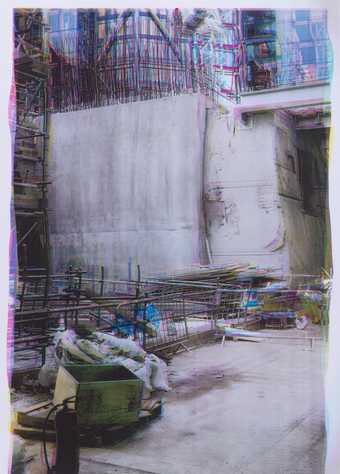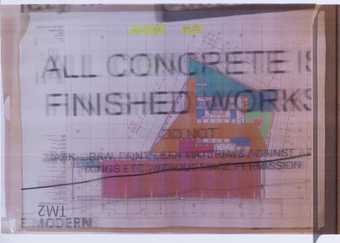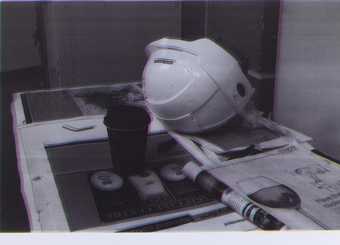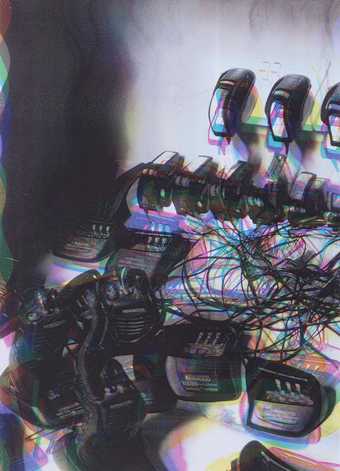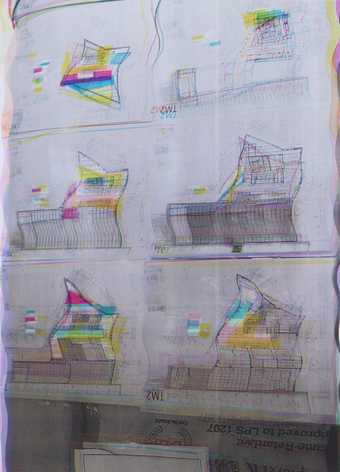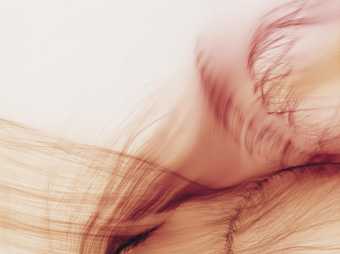
Prints and Drawings Room
View by appointment- Artist
- Wolfgang Tillmans born 1968
- Part of
- Cubitt Print Box
- Medium
- Digital print on paper
- Dimensions
- Unconfirmed: 260 × 210 mm
- Collection
- Tate
- Acquisition
- Purchased 2000
- Reference
- P78405
Summary
Faltenwurf (Cubitt Edition) is one of twenty works produced by contemporary artists for the Cubitt Print Box in 2000. Cubitt is an artist-run gallery and studio complex in north London. In 2001 the complex moved from King’s Cross to Islington and the prints were commissioned as part of a drive to raise funds to help finance the move, and to support future exhibitions and events at the new gallery space. All the artists who contributed to the project had previously taken part in Cubitt’s programme. The portfolio was produced in an edition of 100 with twenty artists’ proofs; Tate’s copy is number sixty-six in the series.
Tillmans’ print is a colour laser copy of a photograph of a dark green casual jacket. The jacket lies in irregular folds as if it had been hurriedly discarded on the floor by its owner. The image is tightly cropped, showing details of the zipper and press stud buttons. The edged stitching on an external breast pocket protrudes slightly suggesting the pocket has been used to carry cigarettes. The cuff of the right sleeve is positioned as if reaching towards this pocket.
Tillmans is a prolific photographer. He usually displays his work in loose, non-hierarchical configurations which suggest the presence of beauty in everyday life (see Concorde Grid, 1997, Tate P11674). Despite this tendency his deceptively casual pictures can be classified in traditional categories, including portraiture, still life, landscape and abstract imagery. This print is one of a series of images of discarded clothes that Tillmans has made throughout his career; the earliest examples date from 1989. These images are all entitled Faltenwurf, a German art historical term that denotes classical drapery.
In mass media advertising imagery, photographs of clothing depict pristine garments. By contrast Tillmans’ jacket bears obvious signs of wear and its haphazard arrangement reinforces the impression that rather than being an object of consumer desire the jacket is a utilitarian item. The jacket also functions metonymically; it is possible to read the image as a surrogate portrait or self-portrait, with the absent body of the jacket’s owner suggested by the garment itself. The tight close up and dark shadowed folds in the cloth convey an immediate intimacy typical of the artist’s drapery series. Critic Dale McFarland has highlighted the sensuality of the Faltenwurf images, saying ‘[Tillmans’] studies of drapery ... have more than a hint of eroticism, clearly evoking the act of undressing, and appear to retain the warmth and smell of the wearer’ (McFarland, pp.81-2).
There are slight discolourations on the surface of the print; it appears that there were small scratches or stains near the top left hand corner and on the bottom right of the photograph from which the laser copies were made. Paradoxically these imperfections heighten the print’s poignancy, suggesting that the source photograph like the jacket in the image was careworn.
Further reading:
Wolfgang Tillmans: if one thing matters, everything matters, exhibition catalogue, Tate Britain, London, 2003, reproduced p.180 in colour.
Benjamin Paul, Wolfgang Tillmans: Still Life, exhibition catalogue, Fogg Art Museum, Cambridge, Massachusetts, 2002.
Dale McFarland, ‘Beautiful Things’, Frieze, no.48, October 1999, pp.78-83.
Rachel Taylor
April 2004
Does this text contain inaccurate information or language that you feel we should improve or change? We would like to hear from you.
Explore
- objects(23,571)
-
- clothing and personal items(5,879)

